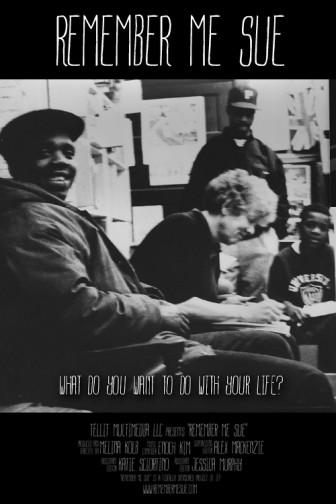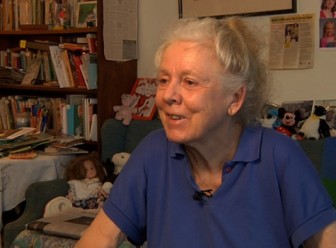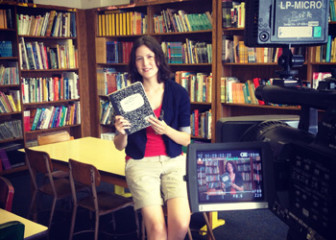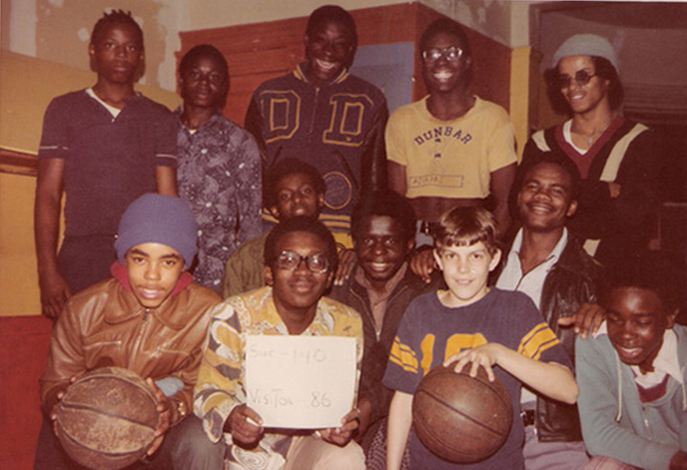The television premiere for "Remember Me Sue," a documentary film about one woman’s 50-year dedication to an after-school center on Chicago’s South Side, aired on PBS Chicago at 9 p.m. Thursday.
In the midst of the civil rights movement in 1961, Sue Duncan founded the Sue Duncan Children’s Center and became a mother figure to the many African-American youth for whom the center cared. Duncan, the mother of U.S. Secretary for Education Arne Duncan, was diagnosed with Alzheimer’s disease in 2011.

The poster for "Remember Me Sue," a documentary film about the life and work of Sue Duncan, mother of US Secretary of Education Arne Duncan. Image from film news release.
Director/producer Melina Kolb, 29, started working on "Remember Me Sue" about 10 years ago. “I produced this movie on my own with a small budget, but it tells a big story,” said Kolb, the founder of Chicago-based media production company Tellit Multimedia LLC.
CHICAGO BUREAU: Please tell us more about the concept behind this documentary.
KOLB: The subject matter is mostly historical. The movie is about Sue Duncan, who worked with children on the South Side of Chicago starting in 1961. The film tries to capture the essence of this one lady’s life work, it’s really a look at the center through the eyes of many people who used to go there and who are still going there. So you have people who went there in the '60s, the '70s, and all the way up till now. I was trying to grasp what kind of impact she was trying to make over the years.
CB: What inspired you to shoot a documentary on Sue Duncan?
KOLB: I found out about Sue Duncan when I was in college. I happened to be a tutor at her children’s center. I was randomly assigned this position and kind of immediately got sucked into this world that she has and this community of children and parents. So when I started tutoring, it was also around the time that I started experimenting with cameras. I wasn’t intending to make this movie. I only made three- or four-minute little films and over the years I always thought in the back of my mind that I was going to do a longer film. When I found out Sue was dying of Alzheimer’s, I realized that if I was going to make this movie I was going to have to do it now.

Sue Ducan, from a still in the film, "Remember Me Sue."
CB: What would it take for society to produce more people like Sue Duncan who would devote such a big chunk of their lives to improving the lives of children?
KOLB: It’s difficult to find another person like Sue who pretty much devoted her life to her work and it’s very, very rare to find someone who’s just so selfless and nurturing and sacrificed so much to help other people. It’s a difficult question, but it starts by teaching people when they’re young to be kind to one another.
CB: What value will this documentary add to creating social change in Chicago today?
KOLB: It can be difficult replicating what Sue Duncan did for so many people, but if people can realize what kind of impact you can have on one kid’s life, that would make a huge difference. I hope people can walk away from the documentary feeling inspired and feeling more conscious of how our kids are raised in the city and how we can improve education here.

Melina Kolb, Tellit Multimedia founder and creator of the documentary, Remember Me Sue.
CB: It isn’t often that a Sue Duncan comes around in communities to offer help. What more needs to be done in the South Side in order to help children get the kind of education and care they need and deserve?
KOLB: I don’t know if I can talk about it policy-wise but what I know is that helping kids one-on-one, helping one child learn how to read, or being present in somebody’s life like Sue was for so many kids, that’s one way to improve the situation. Her center was able to expose children to so many different people and different ideas, to know things about life outside their immediate neighborhood. Probably one of the huge problems that kids in Chicago experience in public schools is isolation. It’s very segregated and you have kids who are completely isolated from the city- some have never been downtown and all they see is what’s immediately surrounding them.
